20 things you may have missed from the election
- Published
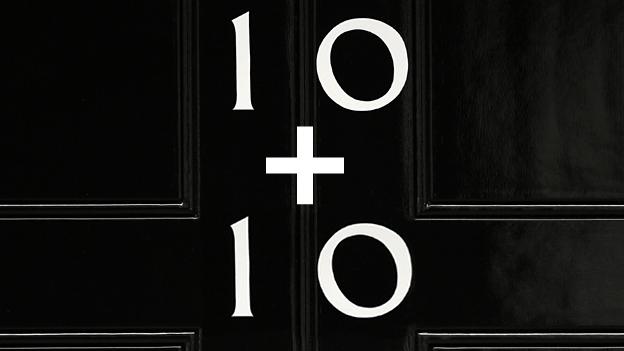
It's sometimes difficult to catch everything during an election night whirlwind of facts, stats and spin. Here are 20 things you may have missed.
1. Votes-to-seats disparity
The UK's first-past-the-post system means that the number of votes rarely translates into an equivalent proportion of seats. And that was especially true in this election. The SNP won 56 seats from 1.45 million votes, a share of 4.8%. But by mid-morning on Friday UKIP had won only one seat for their 3.87 million votes, a 12.7% share of the total. The Greens' 1.15 million votes translated into one seat too, while the Lib Dems won eight seats despite winning nearly 2.4 million votes, a 7.8% share.
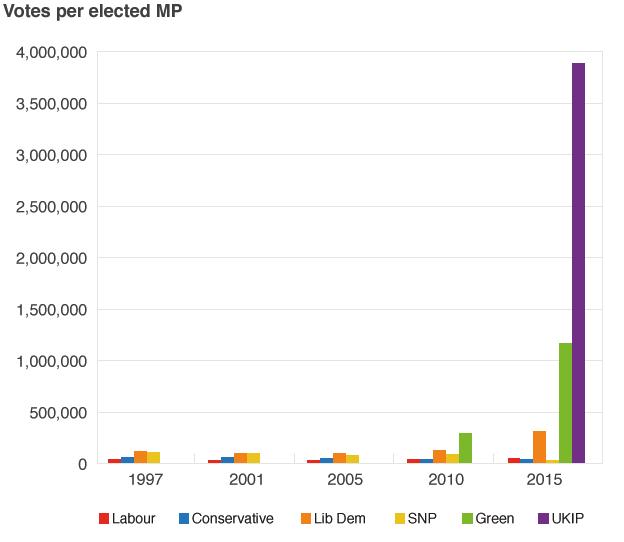
2. Youngest MP since 1667
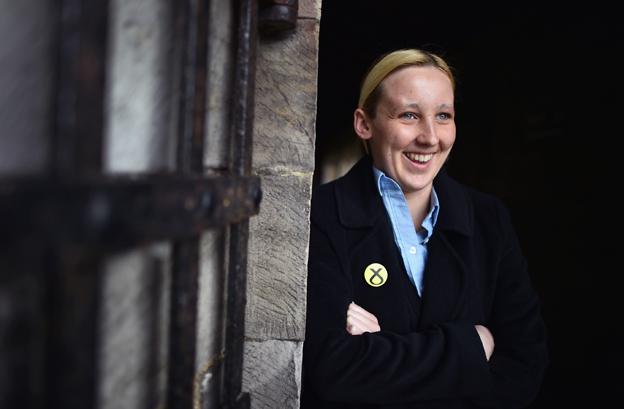
History was made in Paisley & South Renfrewshire, outside Glasgow, where shadow foreign secretary Douglas Alexander lost his seat to the SNP's 20-year-old Mhairi Black, who became the youngest MP since 1667.
She was only eligible to run at that age after the law was changed in 2006, lowering the minimum age requirement from 21 to 18.
But the 1667 record is likely to run for some time. Christopher Monck, 2nd Duke of Albemarle, was 13 years old when he took his seat in the House of Commons. And he became a lord three years later.
3. Cameron stood against Elmo
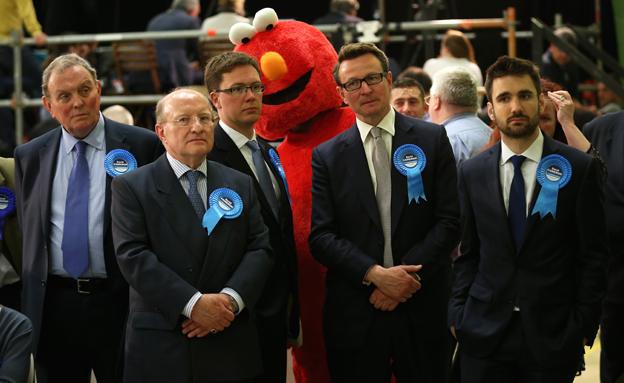
Not quite Elmo himself, but the Give Me Back Elmo party candidate Bobby Smith, who won 37 votes, enough to come third from bottom.
4. Two-party politics
The Conservatives and Labour hold more English seats than in any election since 1970, despite the rise in support for smaller parties such as UKIP.
5. Lowest winning share
Alasdair McDonnell of the SDLP was able to win Belfast South, in Northern Ireland, with just 24.5% of the vote. He edged out the DUP's Jonathan Bell (22.5%) and the Alliance Party's Paula Bradshaw (17.2%). The lowest winning share in England was the 31% needed by the Lib Dems' John Pugh to retain Southport in Merseyside.
6. Bellwether seats
Reading West and Thanet South maintained their 100% records of siding with every election winner - or biggest party - since their creation in 1983. Bristol North West's string of success goes back further, to 1974, the same as that of Loughborough and Watford. But Dartford, maintaining its unofficial title as Britain's best bellwether constituency, resoundingly voted in favour of the Conservatives to keep up its unbroken run since 1964.
7. No shadows
In an unprecedented outcome, both the shadow chancellor and shadow foreign secretary lost their jobs. Ed Balls and Douglas Alexander, effectively the two most senior opposition leaders behind Ed Miliband, lost their seats in Morley & Outwood and Paisley & South Renfrewshire respectively.
8. Harman returns
Their leader didn't last much longer. But following Ed Miliband's resignation, Harriet Harman will be the first person since Arthur Henderson, external in the 1930s to do more than one stint as leader of the Labour Party. Ms Harman has said she will quit the party leadership role when the new leader is appointed.
9. Foreign leaders
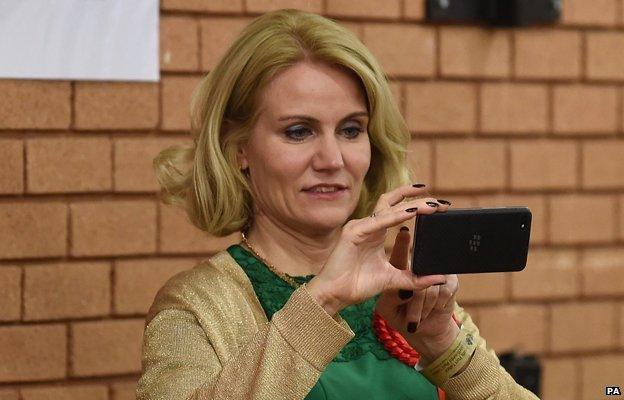
Helle Thorning-Schmidt
Tulip Siddiq, who won the Hampstead & Kilburn seat for Labour, is the niece of the Bangladeshi Prime Minister Sheikh Hasina.
But another foreign leader actually made it to the count. Danish PM Helle Thorning-Schmidt was there to witness the Aberavon constituency count, attending to celebrate her husband Stephen Kinnock's victory.
10. A dead man won 113 votes
Independent candidate and former Eurovision contestant Ronnie Carroll died in April at the age of 80, just days after announcing his candidacy. But in a quirk of electoral law, his name was still allowed to appear on the ballot paper. He won 113 votes in the Hampstead and Kilburn constituency, enough for him to come second from bottom, edging out Robin Ellison of the The U(niversal) Party.
11. Liberal Democrats and their lost deposits
It costs £500 to run for parliament, a deposit that is only returned if the candidate receives at least 5% of the vote.
In 2010, the Lib Dems didn't lose a single deposit. By the end of Friday morning, they had lost £169,000 in deposits for 2015, meaning that they failed to get 5% of the vote in at least 338 constituencies. There's even a Twitter account, external dedicated to how much the Lib Dems have lost.
That is more than the party has lost at any previous election. In 1950, the party lost 319 deposits - however deposits were lost when a candidate got less than 12.5% of the vote rather than 5% at that time.
12. Polar bears
Various people on Twitter have joked that there are as many polar bears - three - in Scotland as there are MPs from Labour, Conservatives and Liberal Democrats combined.
13. Non-white MPs
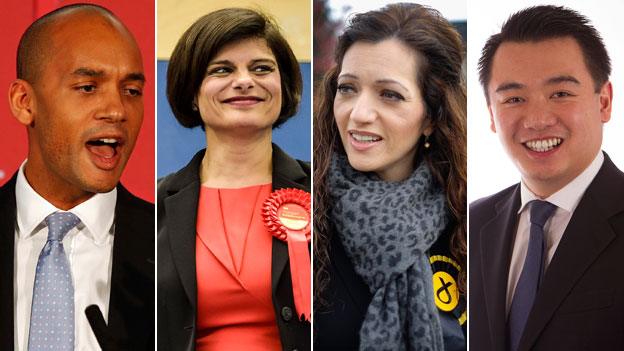
This Parliament will feature a record number of non-White MPs, according to British Future, external. From 27 in the last election, there will now be 41, with the Tories' 17 moving closer to Labour's 23.
14. First MP of Chinese descent
New Conservative MP Alan Mak, external, who is of Chinese-Malaysian background, retained the party's seat of Havant. Born and raised in York, Mak won with more than 51% of the votes. Three people with Chinese ancestry have served in the House of Lords.
15. Gamblers' election
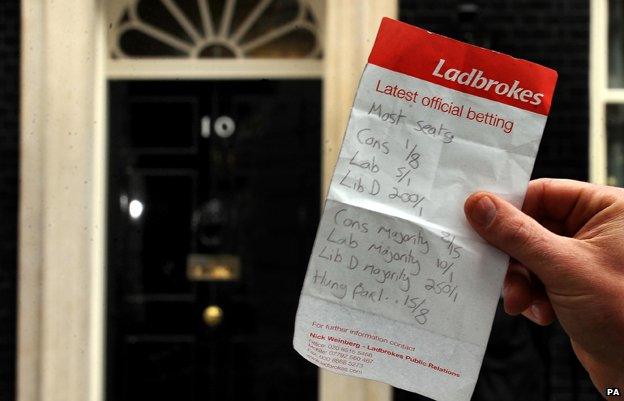
There was an estimated record £100m bet, external on the outcome of this election, compared to about £40m in 2010. And among those bets were some pretty big losses. One punter placed £3,000 on Alex Salmond losing Gordon, external. Another put down £50,000 on Labour winning the most seats, according to Ladbrokes, external. But many mistakenly bet on a hung parliament, including one bet of £200,000, external.
16. More female MPs than ever before
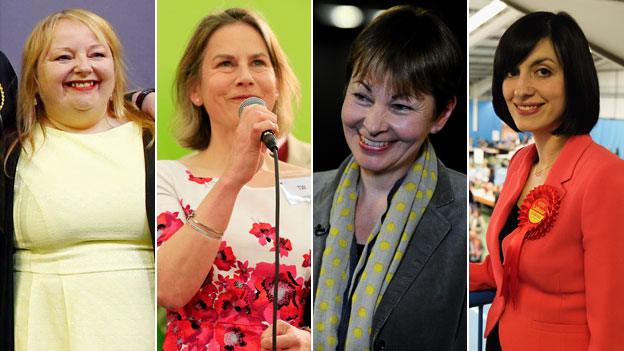
A record number of female MPs have been elected. There will be 191 women in this Parliament, more than the 147 women still in office when the last Parliament was dissolved. In Scotland, more than a third of MPs from Scotland will be women.
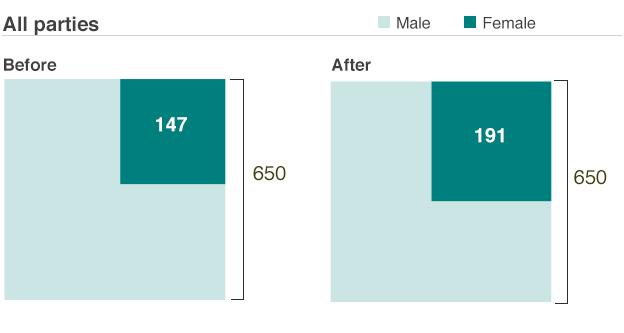
Liz Saville Roberts was elected as Plaid Cymru's first female MP, comfortably winning her race by 5,000 votes in Dwyfor Meirionydd, north Wales.
17. Biggest swing
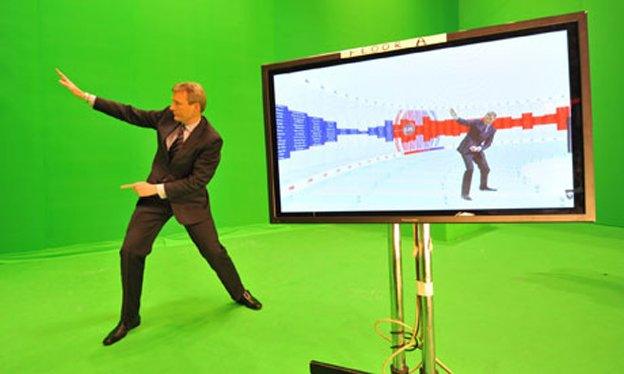
The biggest swing was 39.3% from Labour to the SNP in Glasgow North East.
18. BNP support disappeared
By late Friday morning, the BNP had won 1,667 votes, 0.3% of the 563,743 votes they won in 2010. This year the Cannabis Is Safer Than Alcohol Party won 8,419, while the Monster Raving Loony Party reached 3,898.
19. Young voters
The number of 18-to-25-year-olds who cast their ballots was 58%, up from 52% in 2010 and 38% in 2005, Sky News reveals, external.
20. Highest election turnout this century
Some 66.1% of eligible voters registered their vote, up from 65.1% in 2010, continuing a steady increase from 59.4% in 2001 and 61.4% in 2005, but still some way short of the 71.4% turnout at the 1997 election.
In Scotland, the turnout was 71.1%. - up from 63.8% in 2010.
Two constituencies witnessed turnouts above 80%. Renfrewshire East had 81.1%, narrowly pipped to the top spot by Dunbartonshire East, with 81.9%.
The lowest turnout was in Manchester Central, with only 49.2%, although that was a 5% increase from 2010. Stoke on Trent Central was only slightly higher with 49.9%.
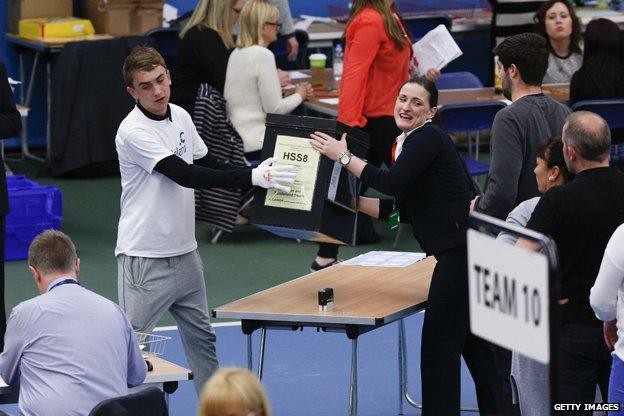
Reporting by Tom Heyden, Vanessa Barford and Jon Kelly.
Subscribe to the BBC News Magazine's email newsletter to get articles sent to your inbox.